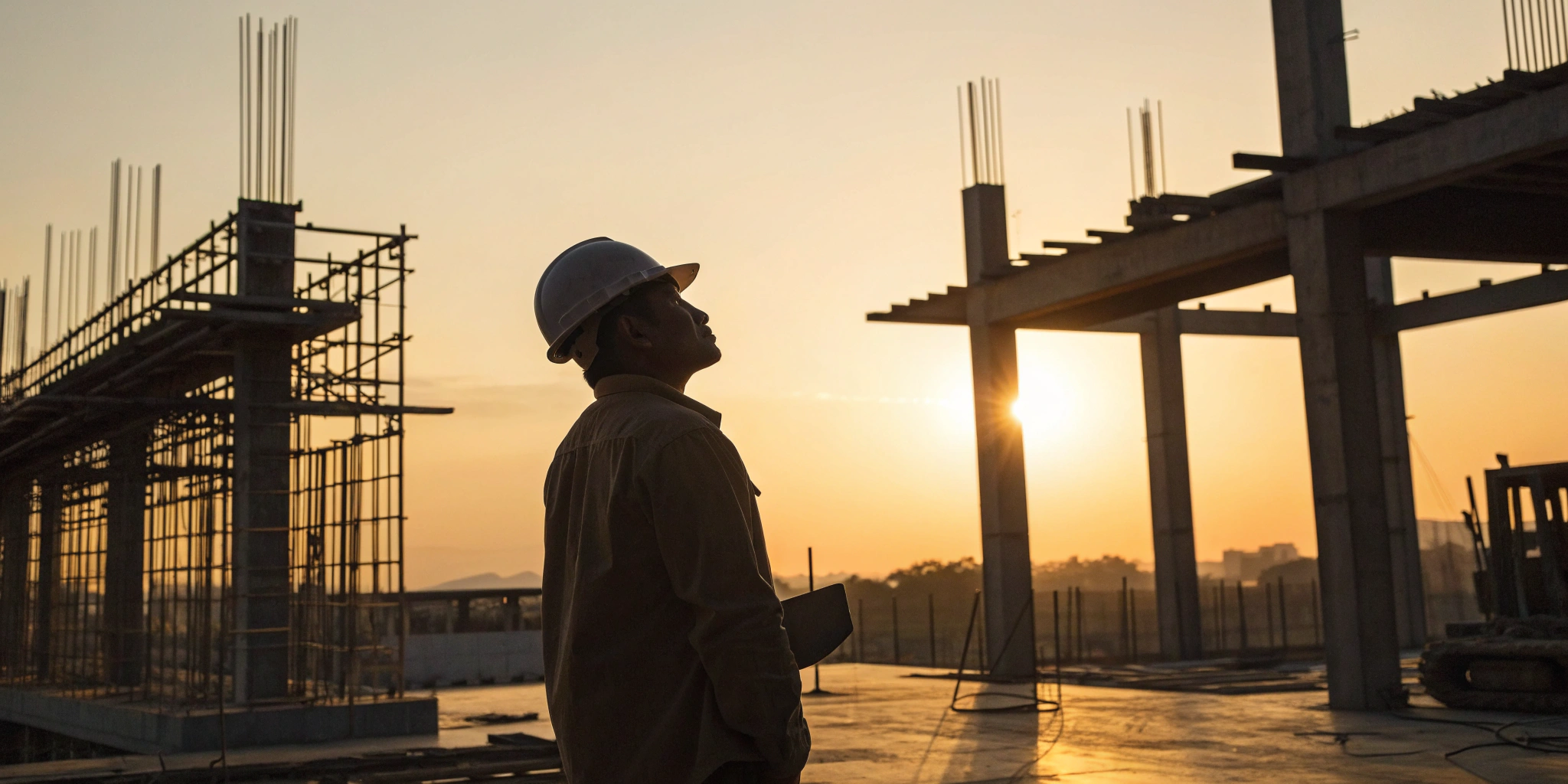The moments following a slip and fall are confusing. While you’re dealing with the immediate pain and shock, the clock has already started ticking on your ability to seek justice. Evidence can disappear, witnesses’ memories can fade, and strict legal deadlines must be met. Trying to manage all of this while recovering from an injury is a monumental task. This is why contacting a slip and fall lawyer as soon as possible is so important. They can act quickly to preserve crucial evidence, interview witnesses, and handle all the necessary paperwork, protecting your rights from the very beginning and building the foundation for a strong and successful claim.
Key Takeaways
- An attorney handles the legal fight so you can heal: A slip and fall lawyer takes on the entire burden of your case—from investigating the scene and gathering evidence to negotiating with insurance adjusters—giving you the space to focus on your recovery.
- Proving negligence is key, and you have limited time to act: A successful claim requires showing the property owner knew about a hazard and failed to fix it. State laws also set strict deadlines for filing a lawsuit, making it critical to consult an attorney soon after your accident to protect your rights.
- You can get expert legal help without paying upfront: Reputable personal injury attorneys work on a contingency fee basis, meaning they only get paid if they win your case. This “no fees until we win” model removes the financial risk and makes quality representation accessible to everyone.
How a Slip and Fall Lawyer Can Help You
After a sudden slip and fall, your first priority is your health. But as the medical bills start arriving and you’re missing work, the financial and legal stress can feel overwhelming. You might wonder if you even have a case or if you can handle it on your own. While it’s tempting to try and deal directly with the property owner or their insurance company, these situations are rarely straightforward. This is where a skilled personal injury lawyer becomes your most important ally.
Hiring an attorney isn’t about being confrontational; it’s about protecting your rights and ensuring you have a professional advocate in your corner. A lawyer does much more than just file paperwork. They step in to manage every aspect of your claim, from conducting a thorough investigation and gathering crucial evidence to handling aggressive insurance adjusters. They understand the complex laws that govern property owner responsibility and know how to build a case that proves negligence. By taking on these burdens, they give you the space you need to focus on what truly matters: your recovery. They will work to get you the compensation you need to cover your losses and move forward.
Handle Complex Premises Liability Rules
Slip and fall cases fall under an area of law known as “premises liability.” In simple terms, this means property owners have a legal duty to keep their property reasonably safe for visitors. However, proving that they failed in this duty is complicated. Was the owner aware of the hazardous condition? Did they have enough time to fix it? Was the danger obvious? The answers to these questions determine whether you have a valid claim. An experienced lawyer understands the nuances of these rules and how they apply to your specific situation. They can analyze the facts to establish that the property owner was negligent, which is the foundation of any successful personal injury claim.
Investigate the Scene and Gather Evidence
Proving who is responsible for your injuries requires a detailed investigation. Your lawyer and their team will act quickly to preserve critical evidence before it disappears. This often involves visiting the accident scene to take photographs, measuring the hazardous area, obtaining security camera footage, and identifying witnesses who saw what happened. They will also collect official documents like incident reports and your medical records. Proving how long a dangerous condition existed and whether the owner knew about it is essential. A thorough investigation uncovers the facts needed to build a strong, evidence-based case and demonstrate exactly how the property owner’s carelessness led to your fall.
Negotiate with Insurance Companies
Soon after your accident, you’ll likely hear from the property owner’s insurance company. It’s important to remember that their goal is to pay out as little as possible. Insurance adjusters are trained negotiators who often make low initial settlement offers, hoping you’ll accept quickly out of desperation. A slip and fall lawyer levels the playing field. They will handle all communications with the insurer, protecting you from tactics designed to weaken your claim. Your attorney will accurately calculate the full value of your damages—including medical bills, lost wages, and pain and suffering—and negotiate forcefully for a settlement that is fair and just.
Develop Your Case Strategy
Winning a slip and fall case requires more than just evidence; it requires a compelling strategy. Your lawyer’s job is to connect the dots and present a clear story that proves three key things: a dangerous condition on the property caused your injury, the property owner was responsible for it, and their negligence led to your harm. This involves anticipating the arguments the other side will make—like claiming you were clumsy or not paying attention—and preparing strong counter-arguments. Your attorney may consult with experts, such as engineers or medical professionals, to strengthen your case and demonstrate the full extent of your injuries and losses.
Fight for Maximum Compensation
Ultimately, your lawyer’s goal is to secure the maximum compensation possible for your injuries and losses. They fight to make sure you are fully covered, not just for your immediate expenses but for future needs as well. This includes payment for all medical treatment, lost income from being unable to work, future loss of earning capacity if you’re permanently affected, and non-economic damages for your pain and suffering. Your attorney will meticulously document every loss to build a comprehensive damages claim. While most cases settle out of court, having a lawyer who is prepared to go to trial shows the insurance company you are serious about receiving what you deserve.
Slip and Fall Cases: Myths vs. Reality
When you’re dealing with an injury from a slip and fall, it’s easy to get overwhelmed by misinformation. Friends, family, and online articles might offer advice, but a lot of it is based on common myths. Let’s clear up some of the biggest misconceptions so you can understand what to really expect. Knowing the facts is the first step toward protecting your rights and getting the support you deserve. Separating myth from reality will help you make informed decisions about your next steps.
Myth: The Property Owner Is Always at Fault
It seems logical that if you fall on someone else’s property, they are automatically responsible. However, that’s not how the law works. To have a valid claim, you must prove the property owner was negligent. This means showing they knew, or should have known, about a dangerous condition (like a wet floor or a broken step) and failed to fix it or warn you about it. Proving who is responsible for a personal injury requires a thorough investigation to establish that the owner’s carelessness directly led to your fall. It’s a detailed process that goes far beyond just pointing fingers.
Myth: You’ll Get a Million-Dollar Payout
You’ve probably heard stories about massive settlements, but those are the exception, not the rule. There is no “average” payout for a slip and fall case because every situation is unique. The amount of compensation you might receive depends entirely on the specifics of your case. Factors include the severity of your injuries, the total cost of your medical bills, any lost wages from being unable to work, and the long-term impact on your quality of life. The goal is to secure a settlement that fairly covers your actual damages, not to hit a random lottery number.
Myth: You Can’t Afford a Good Lawyer
This is one of the most damaging myths because it stops people from seeking the help they need. The truth is, you don’t need any money upfront to hire a skilled personal injury attorney. Most, including the lawyers in our network, work on a contingency fee basis. This means they only get paid if you win your case, with their fee being a percentage of your settlement or award. At Counsel Hound, we stand by our “no fees until we win” promise. You can contact us for a free consultation to discuss your case without any financial risk.
Myth: These Cases Are Simple and Quick
A slip and fall might happen in an instant, but the legal case that follows rarely resolves that quickly. These cases can be surprisingly complex. Insurance companies often try to downplay your injuries or argue that you were at fault to avoid paying a fair settlement. This usually leads to a period of negotiation, and your attorney will need time to build a strong case with solid evidence. While most cases are settled out of court, getting to that point requires patience, strategy, and a lawyer who is prepared to fight for you every step of the way.
Myth: You Have Plenty of Time to File
Waiting to take action is one of the biggest mistakes you can make after a slip and fall. Every state has a strict time limit, known as the statute of limitations, for filing a personal injury lawsuit. If you miss this deadline, you lose your right to seek compensation forever. This window can be as short as one or two years from the date of the accident. Evidence can disappear and memories can fade over time, so it’s critical to speak with an attorney as soon as possible to preserve your legal options and start building your case on solid ground.
Find the Right Attorney for Your Case
Choosing a lawyer is one of the most critical decisions you’ll make after an injury. You need a partner who not only understands the law but also understands you. The right attorney will be your advocate, guide, and champion. Think of your initial consultations as interviews—you are hiring someone for a very important job. Taking the time to find the right fit can make all the difference in your case and your peace of mind.
Analyze Their Track Record
Before you commit, do a little digging into an attorney’s history. You’re looking for a proven record of success, especially with cases like yours. Don’t be shy about asking for case results or client testimonials; a confident and successful lawyer will be happy to share them. This isn’t about finding someone who has never lost a case, but about finding someone who consistently gets positive outcomes for their clients. Reading what past clients have to say gives you a real-world glimpse into their professionalism and ability to deliver. This homework helps you understand if their past performance aligns with your future needs.
Look for a Slip and Fall Specialist
You wouldn’t see a foot doctor for a heart problem, and the same logic applies to law. While many lawyers handle general personal injury claims, a slip and fall case has its own specific challenges and legal nuances. An experienced lawyer will have a deep understanding of premises liability laws and a track record of handling these specific cases successfully. They know what evidence to look for, what questions to ask, and how to build a case that stands up to the scrutiny of insurance companies. This specialized knowledge can be a significant factor in the outcome of your claim.
Assess Their Communication Style
A good lawyer-client relationship is built on clear and consistent communication. During your initial consultation, pay close attention to how the attorney interacts with you. Do they listen to your story without interrupting? Do they explain complex legal terms in a way you can understand? You should leave the meeting feeling informed and respected, not confused or rushed. This person will be your guide through a challenging process, so you need to feel comfortable asking questions and confident that you’ll be kept in the loop about your case’s progress. A free consultation is the perfect opportunity to contact an attorney and see if their style works for you.
Key Questions to Ask in Your Consultation
Your initial consultation is your chance to get the information you need to make a smart decision. Go in prepared with a list of questions to help you gauge the attorney’s experience and approach. Start with the basics: How long have you been practicing personal injury law? What percentage of your cases are slip and fall claims? You should also ask for their honest assessment of your case. A good question is, “Based on what I’ve told you, what are the potential strengths and weaknesses of my claim?” Their answers will reveal their expertise and give you a realistic idea of what to expect moving forward.
Know the Red Flags to Watch For
Just as important as knowing what to look for is knowing what to avoid. Be wary of any attorney who guarantees a win or promises a specific settlement amount, especially during the first meeting. The legal process is unpredictable, and ethical lawyers will never make such promises. Other red flags include poor reviews online, a lack of communication from their office when you try to schedule a meeting, or any pressure to sign a contract on the spot. Trust your gut. If something feels off, it probably is. The right attorney will make you feel supported and confident, not pressured or uncertain.
Know Your Legal Rights and Options
After a fall, it’s easy to feel overwhelmed and unsure of what to do next. Understanding your rights is the first step toward getting the support you need. The law provides a framework for holding property owners accountable when their negligence causes harm. Knowing the basics can help you make informed decisions about your future and protect your ability to recover from your injuries. This isn’t just about rules and regulations; it’s about ensuring you have a fair chance to get back on your feet without bearing the financial burden of someone else’s mistake.
The legal landscape of a slip and fall claim involves several key principles. At its heart is the concept of “premises liability,” which outlines a property owner’s duty to maintain a safe environment. However, insurance companies will often counter these claims by using defenses like “comparative negligence,” suggesting you were partially to blame for the accident. It’s crucial to understand how these rules work together, as they can directly impact the compensation you receive for medical bills, lost income, and pain and suffering. There are also strict deadlines, known as statutes of limitations, that you must meet to file a lawsuit. Getting familiar with these elements will empower you to take the right steps and protect your claim from the very beginning.
What Are Premises Liability Laws?
Slip and fall cases are a specific type of claim that falls under a legal concept called “premises liability.” In simple terms, this means a property owner can be held responsible if someone gets hurt on their property because of an unsafe or dangerous condition. Think of it as the owner’s duty to keep their premises reasonably safe for visitors. If they fail to maintain their property—by not cleaning up a spill, fixing a broken stair, or salting an icy walkway—and you get injured as a result, you may have a valid personal injury claim. The core of your case rests on proving that the owner knew, or should have known, about the hazard and did nothing to fix it.
How Comparative Negligence Affects Your Claim
It’s important to know that insurance companies often try to shift the blame. They might argue that you were careless, not paying attention, or that your injuries aren’t as bad as you say. This tactic is tied to a legal rule called “comparative negligence.” This rule means that if you are found to be partially at fault for your accident, the amount of compensation you can receive may be reduced by your percentage of fault. For example, if you were found to be 10% responsible for the fall, your final settlement would be reduced by 10%. An experienced attorney can anticipate these arguments and build a strong case to show the property owner was primarily responsible for your injuries.
What Kind of Compensation Can You Get?
A serious fall can lead to a mountain of expenses and significant life changes. The goal of a slip and fall claim is to recover compensation, also known as “damages,” to cover these losses. This isn’t just about the immediate medical bills. You may be entitled to recover costs for ongoing physical therapy, lost wages from being unable to work, and future lost earning capacity if your injuries are permanent. You can also seek compensation for non-economic damages, which include pain and suffering, emotional distress, and the loss of enjoyment of life. A lawyer can help you calculate the full extent of your damages to ensure you ask for a fair settlement.
Deadlines for Filing Your Claim
One of the most critical things to understand is that you have a limited time to take legal action. Every state has a law called the “statute of limitations,” which sets a strict deadline for filing a personal injury lawsuit. This time limit can vary, but in some states, you may have only two years or even less from the date of the accident to file your case. If you miss this deadline, you will likely lose your right to seek compensation forever, no matter how strong your case is. That’s why it’s so important to get a free consultation as soon as possible to make sure your rights are protected.
What Are a Property Owner’s Responsibilities?
Property owners aren’t expected to guarantee that no one will ever get hurt on their property. However, they do have a legal “duty of care” to keep their premises in a reasonably safe condition for visitors. This means they must actively look for dangerous conditions, fix them in a timely manner, and put up clear warning signs if a hazard can’t be fixed immediately. For example, if a grocery store manager knows a freezer is leaking, they must clean the puddle and place a “wet floor” sign to warn shoppers. If they fail to take these reasonable steps and you slip and fall, they can be held legally responsible for your injuries.
What to Expect from the Legal Process
The legal system can feel overwhelming, especially when you’re trying to heal from an injury. The good news is that you don’t have to figure it out alone. While every slip and fall case is different, the journey from injury to resolution generally follows a clear path. Knowing what to expect can make the entire process feel more manageable and give you confidence as you move forward.
Your attorney’s main job is to handle the legal complexities so you can focus on your health. They will guide you through each phase, from the first conversation to the final outcome. This process is designed to build a strong foundation for your claim, starting with a thorough investigation and leading to a fight for the compensation you deserve. At Counsel Hound, we connect you with experienced personal injury attorneys who will manage this entire process for you, making sure your rights are protected every step of the way.
Step 1: The Initial Case Evaluation
Your legal journey starts with an initial consultation. Think of this as a simple, no-pressure conversation where you can share your story. Your potential attorney will listen carefully, ask questions about the accident and your injuries, and give you an honest assessment of your case. This is also your chance to ask anything that’s on your mind and see if the attorney is the right fit for you. We believe everyone deserves to understand their legal options, which is why we help you find a lawyer who offers a free consultation to get you started. There’s no obligation—just clear, helpful advice.
Step 2: Gathering Critical Evidence
Once you decide to move forward, your legal team gets to work building your case. During this investigation phase, your attorney does the heavy lifting to gather all the necessary proof. This often includes collecting photos of the accident scene, tracking down and interviewing witnesses, obtaining official reports, and compiling all of your medical records. This evidence is the backbone of your claim, as it helps prove who was at fault and shows the full impact of your injuries and financial losses. Your most important job here is to focus on your recovery while your lawyer handles all the details.
Step 3: Negotiating with the Insurance Company
With a strong case built on solid evidence, your attorney will begin negotiations with the at-fault party’s insurance company. It’s important to know that insurance companies often make low initial offers to try and settle claims for as little as possible. This is where having a skilled negotiator in your corner makes a huge difference. Your lawyer will manage all communications, present the facts of your case effectively, and push back against any unfair offers. The vast majority of personal injury cases are successfully resolved at this stage, without ever needing to go to court.
Step 4: Reaching a Settlement
If negotiations are successful, you’ll reach a settlement agreement. This is a formal resolution where the other party agrees to pay a specific amount of compensation for your injuries and other damages. Once you accept the offer, your attorney will manage the final paperwork. The settlement funds are then used to pay for legal fees and any outstanding medical bills related to your case, and the rest goes directly to you. Our client-first approach means we connect you with attorneys who prioritize transparency, so you’ll always be clear on how your settlement is handled.
Step 5: Preparing for Trial (If Necessary)
While most cases settle, sometimes an insurance company refuses to offer a fair amount. If that happens, your attorney will be ready to take your case to trial. This step involves more intensive preparation, like conducting formal interviews under oath (called depositions), hiring expert witnesses to testify, and developing a compelling strategy to present to a judge and jury. Though going to trial is less common, it’s a powerful option to have. It shows the other side that you won’t back down from a fair fight, and your legal team will be fully prepared to advocate for you in the courtroom.
Understanding the Costs: No Fees Until You Win
One of the biggest worries after an accident is how you’ll afford legal help, especially when you’re already facing medical bills and lost wages. That’s why many personal injury law firms, including ours, operate on a “no fees until we win” basis. This approach is designed to remove the financial risk from your shoulders so you can focus on your recovery. It means you can access high-quality legal representation without paying anything upfront. Let’s break down exactly what this means for you and your case.
Why Your First Consultation Is Free
Your initial consultation is always free because it’s a crucial first step for both of us. It’s your chance to share your story, ask questions, and understand your legal options without any financial pressure. For the attorney, it’s an opportunity to evaluate the strength of your case. Since we work on a contingency basis, we only take on cases we believe we can win. This no-obligation meeting ensures that we are a good fit for each other before moving forward. It’s a straightforward way to get the answers you need and decide on your next steps with confidence. You can schedule a free consultation to discuss your situation with an experienced attorney today.
What Is a Contingency Fee?
A contingency fee is the payment your lawyer receives only if they win your case. Instead of charging an hourly rate, the attorney’s fee is a pre-agreed-upon percentage of the final settlement or court award. This model aligns your interests with your lawyer’s—we are both motivated to secure the highest possible compensation for your injuries. If we don’t win your case, you don’t owe us any attorney fees for the work we’ve done. This arrangement makes justice accessible to everyone, regardless of their financial situation. It allows you to pursue a personal injury claim without worrying about upfront legal costs.
Are There Other Case Expenses?
Beyond attorney fees, every lawsuit involves case expenses. These are the out-of-pocket costs required to build and argue your case effectively. Common expenses include court filing fees, costs for obtaining medical records and police reports, deposition fees, and fees for expert witnesses who may need to testify on your behalf. At Counsel Hound, we typically advance these costs for our clients. This means we cover them as they arise, and they are then reimbursed from the settlement or award at the end of the case. We believe you shouldn’t have to pay out-of-pocket to fight for the compensation you deserve.
How Fees Work with Your Settlement
When your case is resolved, the contingency fee and case expenses are deducted from the total settlement amount. The industry standard for a lawyer’s fee typically ranges from 30% to 40% of the recovery. For example, if your case settles for $100,000 and your contingency fee agreement is for 33%, your attorney’s fee would be $33,000. Any case expenses that were advanced by the firm would then be deducted from the remaining amount, and the rest is yours. We are always transparent about our fee structure and ensure you understand exactly how the numbers work before you sign any agreement.
Who Pays If You Don’t Win?
This is the most important part of our promise: if you don’t win, you don’t pay. If we are unable to secure a settlement or a favorable verdict at trial, you will not owe us any attorney fees. Period. This is the core of the contingency fee model. It’s our way of sharing the risk with you and showing our confidence in our ability to handle your case. Our “no fees until we win” policy ensures that you can pursue justice without the fear of ending up with a large legal bill if things don’t go your way. You can learn more about our client-focused approach on our About Us page.
How to Build a Strong Slip and Fall Case
After a slip and fall, what you do next can make a huge difference in your ability to get fair compensation. Building a strong case starts right away, and taking a few key steps can protect your rights and document what happened. By being proactive, you provide your legal team with the solid foundation they need to fight for you.
Gather Key Documents
The moments after a fall are critical for gathering evidence before it disappears. If you are able, gather evidence right away. This includes an incident report, pictures of the dangerous spot, any warning signs, and the area where you fell. Use your phone to take photos and videos of the hazard from multiple angles, showing exactly what caused your fall. If you file an incident report with the property manager, be sure to get a copy for your records. It’s also a good idea to set aside the shoes and clothing you were wearing at the time of the accident in a safe place.
Organize Your Medical Records
Your health is the top priority, but seeing a doctor immediately after your fall also creates a crucial piece of evidence. This helps connect your injuries directly to the incident and shows how serious they are. Start a dedicated folder for all medical paperwork. This should include everything from initial emergency room bills and doctor’s notes to receipts for prescriptions and physical therapy appointments. Keeping these records organized will create a clear timeline of your treatment and document the full extent of your personal injury claim. This documentation is essential for proving the damages you’ve suffered.
Collect Witness Statements
An unbiased account of what happened can be incredibly powerful for your case. If anyone saw you fall, ask them to write down what they saw. At the very least, get their name and phone number so your attorney can contact them later. People’s memories can fade quickly, so getting a statement while the event is still fresh in their mind is ideal. A simple, signed note or even a recorded statement on your phone describing what they witnessed can provide critical support for your version of events and counter any claims that you were at fault.
The Role of Expert Testimony
Sometimes, proving a case requires more than just photos and medical bills. This is where expert witnesses come in. An experienced attorney will know when to bring in a professional to help explain complex issues to an insurance company or a jury. For example, a medical expert can testify about the long-term impact of your injuries and future treatment costs. An engineering expert might be needed to explain how a poorly maintained staircase violated building codes. This expert testimony provides authoritative, credible evidence that can be essential for proving fault and securing the compensation you deserve.
How to Prove Negligence
Winning a slip and fall case isn’t just about showing you fell and got hurt; you have to prove the property owner was negligent. To win a case, your attorney must show that a dangerous condition on the property caused your injury, the property owner was in charge, and their carelessness led to your injuries. This means demonstrating that the owner knew, or reasonably should have known, about the hazard but failed to fix it or provide adequate warning. Proving this is the core of your claim, and an experienced lawyer can help you gather the evidence needed to build a compelling argument. If you have questions about your situation, contact us for a free evaluation.
Related Articles
- Personal Injury Law | Counsel Hound
- personal injury law firms | Counsel Hound
- Personal Injury Lawyers | Counsel Hound
Frequently Asked Questions
What if I think the fall was partly my fault? Can I still have a case? This is a very common concern, so don’t let it stop you from seeking advice. Many states have laws for situations where more than one person is at fault. This is often called “comparative negligence.” It means that even if you were partially responsible, you may still be able to recover compensation, though the amount might be reduced based on your percentage of fault. An experienced attorney can evaluate the specific details of your accident and explain how these rules might apply to your situation.
The property owner’s insurance company contacted me with a settlement offer. Should I take it? It’s wise to be cautious with early settlement offers. Insurance companies often try to resolve claims quickly and for the lowest amount possible, which may not cover the full extent of your medical bills, lost wages, and future needs. Accepting an offer too soon usually means you waive your right to seek any further compensation. Before you agree to anything, it’s best to have a lawyer review the offer to ensure it’s fair and truly covers all of your losses.
How long does a slip and fall case usually take to resolve? There’s no standard timeline, as every case is unique. The duration depends on factors like the complexity of the accident, the severity of your injuries, and how willing the insurance company is to negotiate a fair settlement. While a straightforward case might be resolved in a few months, a more complicated one could take a year or longer, especially if it needs to be prepared for trial. The goal is to secure a just outcome, and a good lawyer won’t rush the process at the expense of your compensation.
My injuries seem minor. Is it still worth talking to a lawyer? Yes, it’s always a good idea to get a professional opinion. Some injuries that seem minor at first can develop into more serious, long-term problems later on. Speaking with an attorney during a free consultation can help you understand your rights and the potential value of your claim. It gives you a clear picture of your options without any cost or obligation, ensuring you don’t unknowingly give up your right to compensation for injuries that worsen over time.
What’s the most important thing to do immediately after a slip and fall accident? Your first priority is always your health, so seek medical attention right away. After that, if you are able, try to document everything. Use your phone to take pictures of the exact spot where you fell, capturing the hazard that caused it from several angles. If there were any witnesses, get their names and contact information. Reporting the incident to the property manager and getting a copy of the report is also a crucial step in preserving the facts of what happened.





